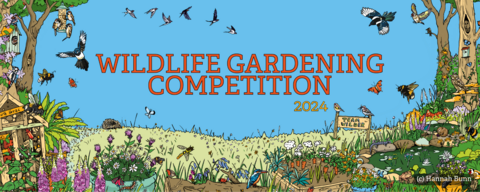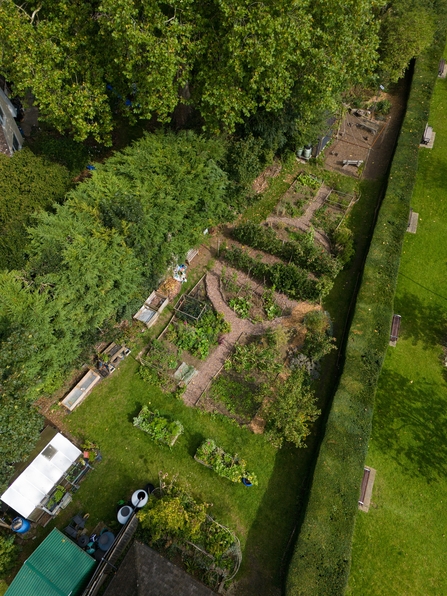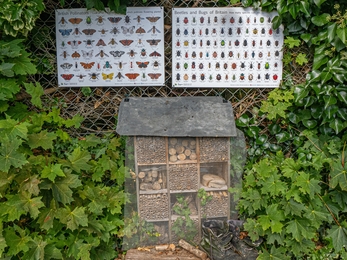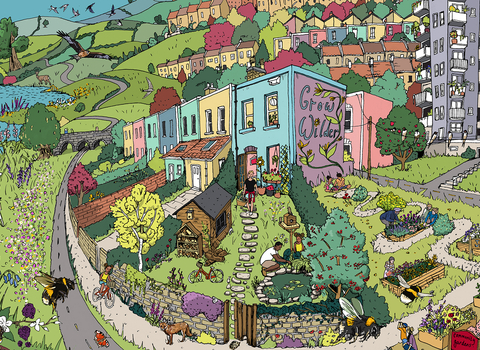
Hannah Bunn
Community space: Alice Park
Name: Alice Park
Category: Community Space
Area: Bath
Tell us what you or your group love about your garden
Kathy: We are an organic, no-dig vegan garden. We do not use any artificial pesticides, herbicides or other chemicals that harm wildlife. We make space for nature. We use sustainable horticultural techniques like mulching, green manures and biochar that build soil health, promote healthy populations of soil microbes and support a diverse 'food chain' in the garden.
We are content to grow food to share with our volunteers and our voracious molluscs, flea beetles, caterpillars and other wee beasties. We encourage self-seeding pollinator plants such as marigolds, scentless chamomile, fennel, love-in-the-mist and native wildflowers as well as extending the season for pollinators by having early- and late-flowering plants such as ivy, lungwort, spring bulbs and fruit tree blossom.
Edges are left untouched. We do no-mow May on our grassy areas, there are bee hotels, twiggeries, beetle banks and we collect fallen leaves for leaf mould and encourage leaf litter refuges in the forest garden. We have a bird box, provide lots of shelter and we refrain from pruning back the berry-bearing trees and shrubs for winter bird food. The forest garden is designed to fend for itself, with plenty of wildflower species amongst the ground cover.
Alice Park Community Garden is open 24/7 and is well-used by local people, as somewhere to sit, to learn about vegan organic food growing and forest gardening, to attend a workshop on a gardening/cooking/ wildcrafting theme and somewhere to socialise, connect with nature and enjoy being outdoors.
The garden has been tended by volunteers for 12 years and is a demonstration garden showing eg water saving techniques, composting, promoting soil health, befriending microbial life, using cover crops, green manures, seed saving and other sustainable techniques whilst maintaining spaces for wildlife to forage, shelter, breed and find refuge.
What makes your garden wildlife friendly?
Kathy: The compost heap is a world of invertebrate wonders and earthworms. We encourage native wildflowers in the forest garden and beneath the fruit trees to support pollinators. We have lots of nettles, brambles and log piles which tend to be left well alone, for the decomposers and beetles.This year we made a 'Dedge' leaving more material on-site & developing habitat.
We have elder, dog rose, climbers and fruit trees providing a larder for birds and small mammals. Our pond for wildlife is always in motion & teeming with life just below the surface, our little tub water feature offers a place for birds & insects to have a drink. There are wilder areas that we leave largely undisturbed around the fringes making protective pathways for nature.
Vote for Alice Park!

John Seager







